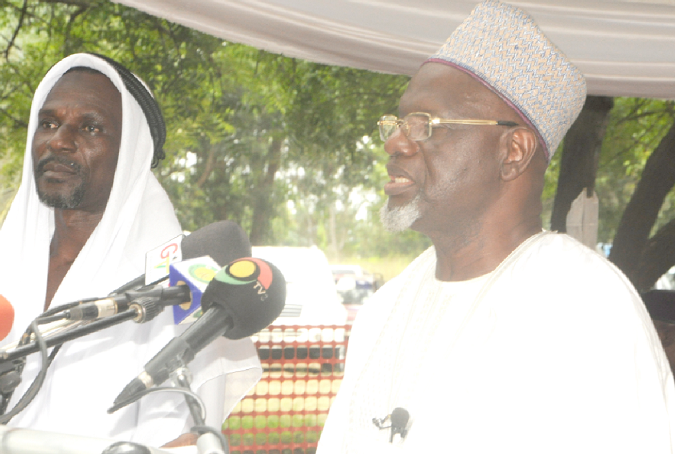
‘Stronger Pan-African movement vital for African unity’
The Ameer and Missionary in-charge of the Ahmadiyya Muslim Community in Ghana, Maulvi Muhammed Bin-Salih, has stressed the need for a stronger Pan-African movement to unify and uplift the people of African descent in the diaspora to keep stronger ties with members in the rest of the world.
Advertisement
He said Pan-Africanism was a worldwide intellectual movement that encouraged and strengthened the bonds of solidarity between people of African descent, which came with the ideology that the people of Africa and other countries around the world were intertwined.
Pan-African unity
“Core Pan-Africanism was based on the belief that African people, both on the continent and in the diaspora shared not a common history but a common destiny as well,” Maulvi Bin-Salih, told the Daily Graphic on the sidelines of the just-ended 51st Convention of the Ahamdiyya Muslim Community (Jalsa Salana) in Hampshire, UK.
The Jalsa Salana, which is the largest Muslim convention in Britain, assembled more than 30,000 members of the Ahmadiyya Islamic Movement from other parts of the world.
According to Maulvi Bin-Salih, the Pan-African Ahmadiyya Muslim Association (PAAMA), apart from the political orientation, largely drew its name from the original Pan-African movement driven by religious considerations.
He indicated that beside the binding factor, Pan-Africanism being an ethical one, the PAAMA went the extra mile to rope in the Ahmadiyya Muslim factor as the most potent among the determining factors.
Objectives
Earlier, the Islamic cleric had addressed a group of Pan-Africanist within the Ahmadiyya movement where he spoke on the role and vision of the PAAMA.
He spoke on the objectives of the association, which he enumerated as team building, strategic orientation, motivation and inspiration, removing constraints and cohesion, and made a case for the movement in the diaspora to foster a team spirit for a common cause.
He asked members of the movement to identify and address issues to inspire the PAAMA to achieve its set objectives, adding that “the intervention would help the association to identify helpful mechanisms, propose solutions and develop plans to improve our work.”
Expectations
Turning the spotlight on the expectations of the PAAMA, the leader of the Ahmadi community in the country mentioned the issue of improved working relationship between the strata of leadership to establish clear communication lines and develop a better coordination among various nationals within the movement.
“The variety of nationalities must be seen to be an asset rather than a liability to the cohesion of the association,” Maulvi Bin-Salih added.
He remarked that until the association was able to determine its strengths and identify its foundational problems and fashion out possible solutions the desired goals would not be achieved.




